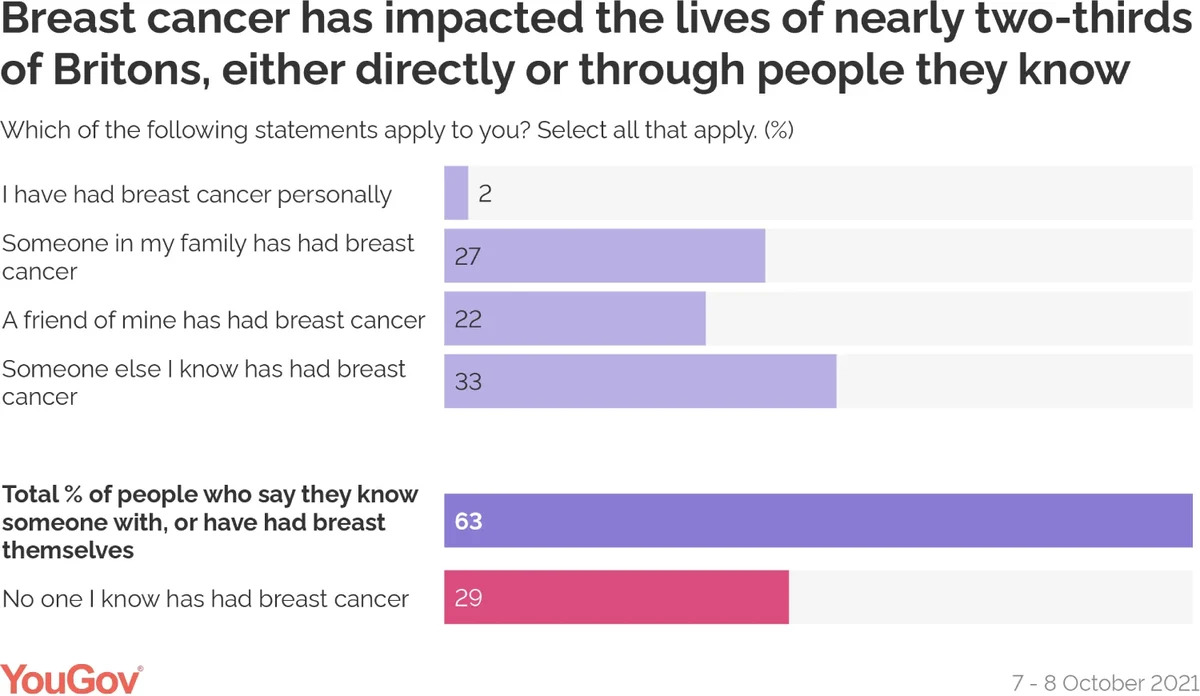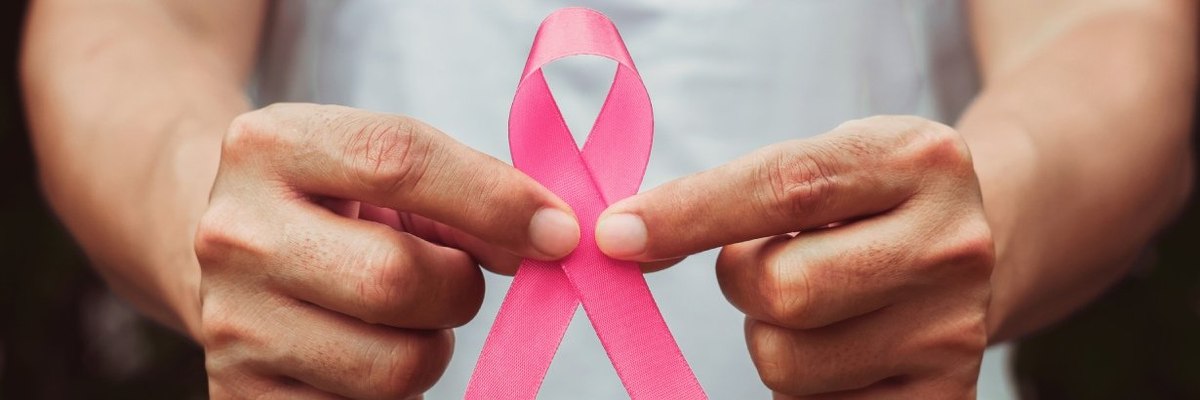The disease has impacted the lives of six in ten Brits in some way
October marks breast cancer awareness month. Despite being the most common cancer in the UK there is a misconception among some that it only affects women. A new YouGov survey asks both British men and women when, if ever, was the last time they did a self-check, and if the disease has impacted their lives.
While screening for breast cancer is routine for older women, the NHS recommends that all women are ‘breast aware’ so they can spot the signs and symptoms of the disease. Breast cancer awareness charity CoppaFeel recommends self-checks for signs of the disease should be a monthly habit for both men and women.
Among women, three quarters (76%) say they have ever checked themselves for signs of breast cancer. This includes two in five (41%) who say they have done within the last month, and 18% say they have done so in the last six months. Just 11% of women say they’ve never done so.
While eight in ten men (80%) are aware that they too can develop breast cancer, only 19% of men say they have ever done a breast exam themselves. This includes some 6% who say they have done one in the last month. Approaching seven in ten (69%) say they have never performed a self-check for signs of breast cancer.
Breast cancer has affected the majority of Britons in some way
While cancer will affect around one in eight women directly in their lifetimes, a diagnosis can affect an entire family. Overall, nearly two-thirds of Britons (63%) say the disease has been part of lives.
A quarter (27%) of people have a family member who has had breast cancer, 22% have had a friend diagnosed with the disease and 2% say they have had it themselves. Another 33% of people have a different acquaintance who has had breast cancer. Only 29% don’t know anyone who has had breast cancer.

Among older Britons, the proportion of those saying they know someone who has had breast cancer rises to three in four (75%). Women are also more likely to know or have known someone with the illness (72%) compared to men (53%).
See full results here











